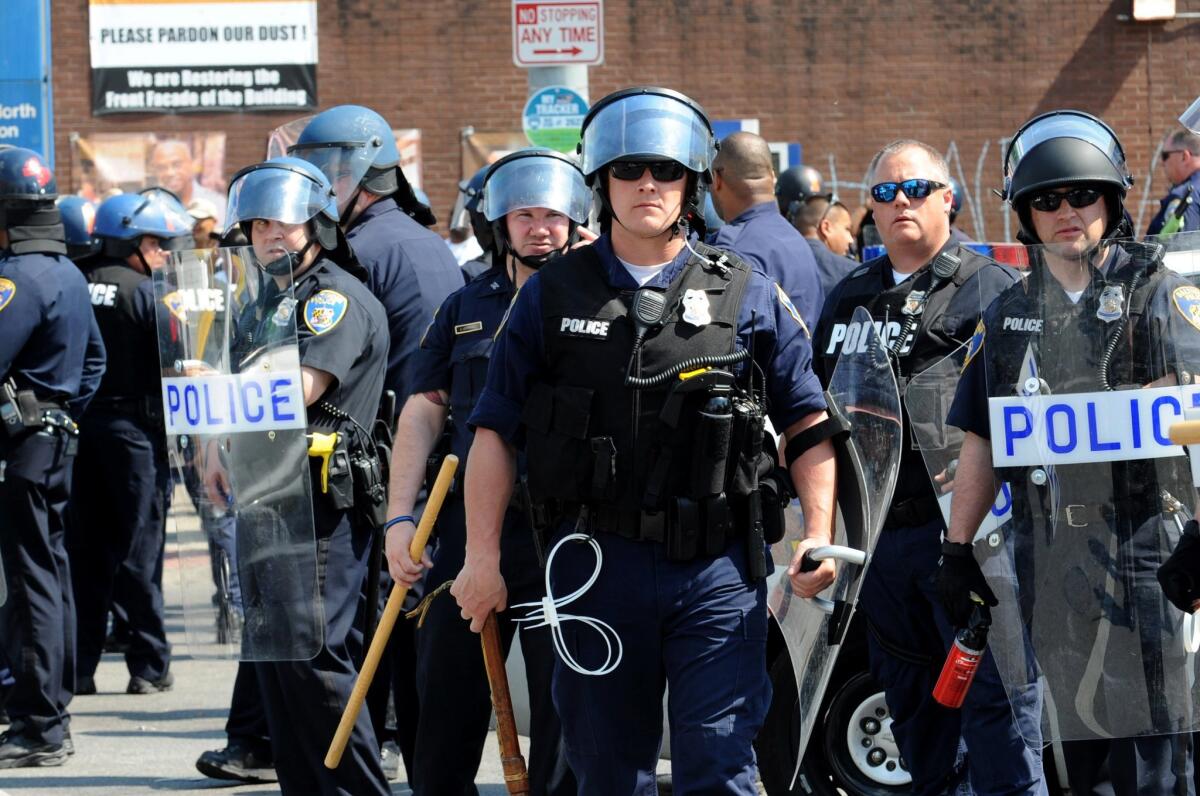Editorial: How deep are the problems in Baltimore’s police department?

- Share via
The decision by Baltimore State’s Atty. Marilyn J. Mosby to bring murder, manslaughter and other criminal charges against six police officers in the death of Freddie Gray brought cheer to protesters in that embattled city and their counterparts in other cities where civilians have long complained of abusive or violent police practices. That reaction is understandable. The charges send an important signal that police conduct resulting in the death of a suspect will be taken seriously.
It is notable that the prosecutor found no evidence that Gray had committed a crime and that the officers had failed to establish probable cause for his arrest. They violated department policy by failing to buckle him into their van, instead leaving him face down on the floor with his hands and feet shackled. Arrest without adequate reason, rough handling despite policy — these are attributes of a police force flouting the law and abusing its substantial power.
So were these six officers department rogues, atypical of the Baltimore police? Or would any six officers in this department have acted the same way because of problems in their training, oversight and organizational culture? Would six officers from another department have done the same?
That’s the question, too often unasked, at the heart of any prosecution of police officers. In Los Angeles, the ultimate conviction of two out of four police officers on federal civil rights charges in the beating of Rodney King brought King a modicum of justice, but it was no substitute for the deep and essential departmental reforms that came later with a ballot measure, revamped and strengthened civilian oversight, the Rampart consent decree, a hard-nosed reform-oriented chief in William J. Bratton and the passage of enough time to replace many resistant officers with new recruits steeped in modern, and constitutional, policing.
In Baltimore, verdicts remain a long way off. When they come, observers should resist the temptation to embrace guilty verdicts as a victory or as reform, in and of themselves, or to view acquittals as vindication of current police practices.
There is obviously a severe problem in any police department in which officers feel free to disregard laws and protocols for arresting and transporting suspects, or in which they use unnecessary force or kill unarmed suspects. In Baltimore’s case — and in the cases of other police departments with practices that result in needless deaths of suspects — such problems should be addressed immediately on a department-wide level, without waiting for further action by the state’s attorney or by juries.
Follow the Opinion section on Twitter @latimesopinion and Facebook
More to Read
A cure for the common opinion
Get thought-provoking perspectives with our weekly newsletter.
You may occasionally receive promotional content from the Los Angeles Times.









